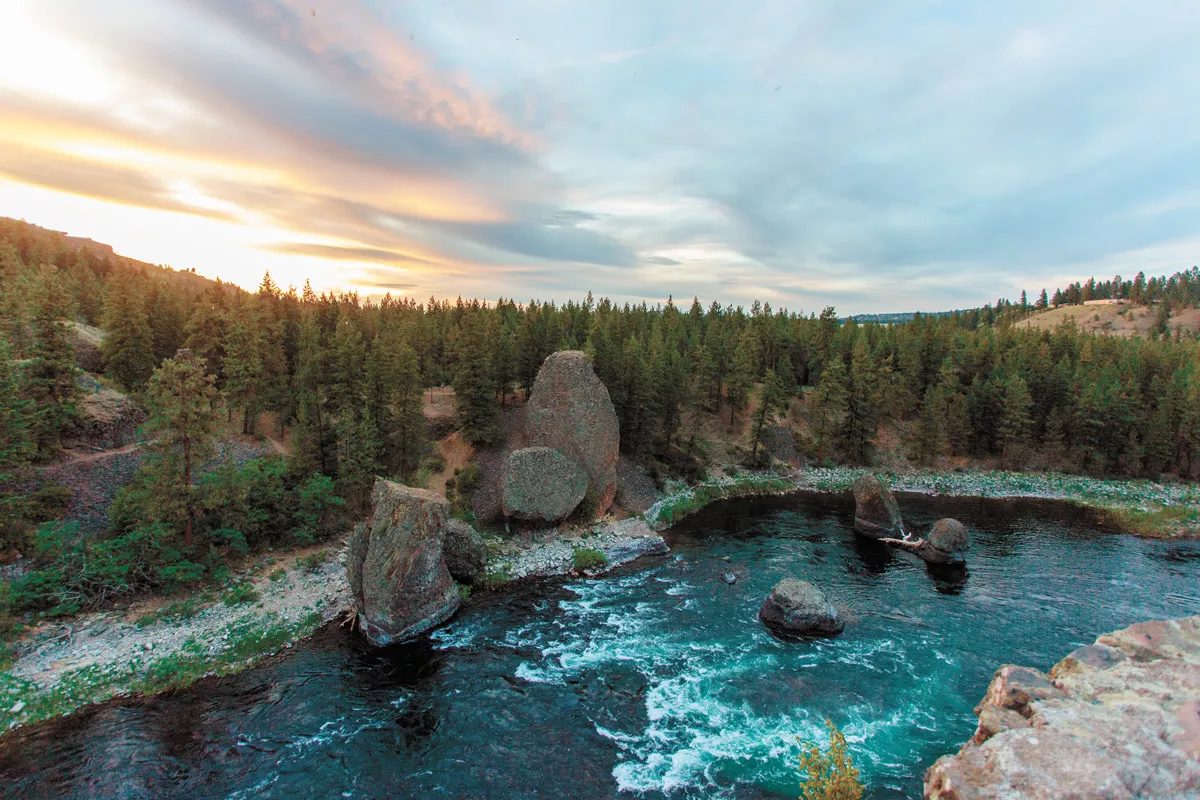Surely the convergence of COVID, the cold and lack of in-person contact partially accounted for America's cantankerousness this past election cycle. Disenfranchisement, disillusion and a multitude of systemic issues undoubtedly contributed as well.
Personally, I observed a rather unsettling side of myself this season, a subtle slide further into entrenchment, the hardening of an us vs. them mentality. As someone who has studied human conflict and reconciliation, this felt disconcerting. History has shown us the moral imperative of rejecting claims of categorical exclusion, as most atrocities arise from "othering." Dehumanization creates derision, which erodes societal connections and causes unhealthy fracturing of the self.
Yet, knowing this did not inoculate me from falling prey to polarization. Even more distressing, I put safeguards in place after 2016 and our country's ostensible stratification. I diversified my news feeds, hoping to gain more insight. What I have seen since that election is disturbing — massive dissonance and an ever-widening divide, threatening to fray the threads of our shared reality. America is being sold radically different stories.
Some in Silicon Valley have stepped up to take responsibility. I do not relish joining this chorus because it feels a bit like proclaiming a "get off my lawn" refrain, but their algorithms are alarming. Of course, we also must acknowledge the complexity of our current situation. Technology produces innumerable contributions and like any tool, it is neutral. But industries aren't. They, like the rest of us, are motivated by a range of incentives — some healthy, some not — although profit frequently rises to the top. Since our society has assented to operating under models that encourage maximizing revenue, it makes sense that a parallel path has been set for AI's programming.
Though our time has always been valuable, our attention is now monetizable, making us the product. Catching our eye — for even a moment — is a commodity, bid on, bought and sold in increments. This is both new and not new. Tobacco, food, alcohol and beauty companies have long used experts to create the salacious quotient, designed to hook. AI is just exponentially better. Its ability to collect immense amounts of personal data and then create individualized experiences to extract our attention is improving by the second. Its processing power exposes our very human vulnerabilities, leaving us open to addiction, misinformation and manipulation.
Even though I deliberately diversified my news intake, I was rarely shown opposing viewpoints because the algorithm had discerned my implicit interests by paying attention to what actually held mine. Arguably, this type of curation is convenient, but it also creates "perception gaps" with others. We cannot connect or coordinate if we receive fundamentally different information.
Surprisingly, the fix is fairly simple, though as with any form of compulsion, it's the application that's difficult — honest acknowledgment, consistent intentionality with our choices and exposure. So, while conventional wisdom conveys that winning an election requires securing an adequate number of votes, I'm now positing that as a country we reset, widening our parameters of success. Toward the end of this election, I decided to choose a definition of victory beyond the binary win/lose: Talking to neighbors, getting to the root of our values instead of mere persuasions. Connection and sincerity. More earnest emotion, less cynicism and snark.
Deleting apps and declaring liberation. Less Instagram, more imparare l'italiano. Escaping the curated world and entering the real one, slithering around in all those corporeal senses — inhaling steamy peppermint tea, being tightly wrapped in a straight-from-the-dryer, slightly static-y blankie. Letting fingers and face get all saucy while snacking on a sandwich from Stella's. Feeling the silkiness of chalk seeping into fingertips while drawing a hopscotch board on bumpy pavement. Admiring the natural splendor of this region, its sunrises and sets or when crystalized snow rests atop the still lush, verdant branches below.
Listening. Slowing on a Sunday morning to hear a sermon from some of this land's longtime caretakers, the Kalispel Tribe, about their abiding connection. Taking the long way home and driving down into those valleys just to be swallowed up whole — in body and soul — by the river's perpetual beauty. (Choose, if you like, to augment this virtuous reality through a reading. Under the Riverfront Park Pavilion's halo you will find Alex Sherwood's quote: "Sometimes I stand and shout 'River do you remember us?'")
Snuggling up with Jess Walter (his new book, not the person) and discovering truths only fiction can deliver. Using the library's convenient curbside pickup to procure Barbara Kingsolver's new book of poetry. Then, letting words hit deep within marrow — "How to stay at this desk when the sun is barefooting cartwheels over the grass— [...] How to resist the kiss, the body forbidden that plucks the long vibrating string of want—/How to drink water when there is wine—/Once I knew all these brick-shaped things, took them for the currency of survival./Now I have lived long and I know better."
So, my fellow Americans, hopefully you'll join me and consider: How do you define winning? How do you pledge allegiance to much higher callings — those far above any profit or party? How do you choose to nurture your time, connections and your one sacred body? ♦
Inga N. Laurent is a local legal educator and a Fulbright scholar. She is deeply curious about the world and its constructs and delights in uncovering common points of connection that unite our shared but unique human experiences.

